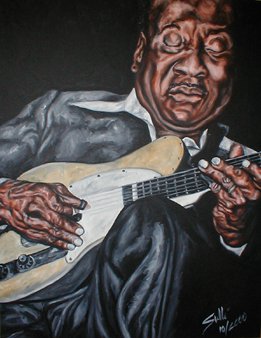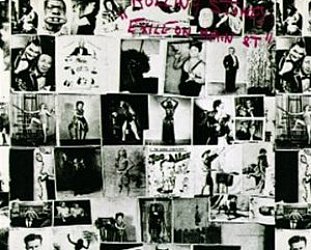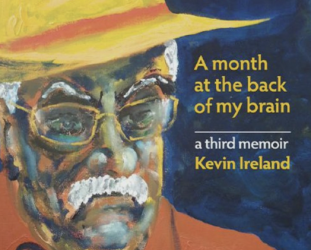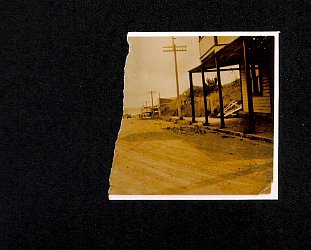Graham Reid | | 3 min read

When McKinley Morganfield’s grandmother named him Muddy after the nearby Mississippi and he later took the surname Waters, there seemed something oddly symbolic in it. Here was man who wasn’t born in the year he said he was, claimed a town he wasn’t born in as his birthplace and carried a name he wasn’t born with.
These are muddy waters indeed.
Yet in that there is something emblematic of the blues he came to play and define.
The blues too, is mired in muddy history and elusiveness, and Water’s life epitomised its development from the cruel cotton plantations of the South to the tough urban sounds of Chicago. Waters literally made that journey and as he did so his music changed from acoustic to electric. And became electrifying.
Waters -- who died in 1983 at age 70, although he had celebrated his 68th birthday a month before -- defined a hard-edged and muscular style of blues that profoundly influenced hundreds of musicians, not the least Eric Clapton, Eric Burdon of the Animals and the young Rolling Stones, one of whom (Keith Richards), writes the brief foreword to this scrupulously researched and vibrant biography.
Robert Gordon -- who has written extensively on the music of the South and Elvis Presley -- not only knows the musical turf but the geography and atmosphere of the Mississippi Delta where Waters grew up as a dirt poor, barely literate kid working on a cotton plantation.
Digressions into the culture of King Cotton and plantation life add insight into the world in which Waters was formed, as do Gordon’s potted biographies of the musicians Waters would listen to, play alongside and learn from.
And Gordon often writes with the spirit of a poet to recreate a sense of place, whether it be rural shacks vibrating with primitive blues or the unforgiving streets of Chicago.
Waters’s first recordings were made by the late Alan Lomax who dragged his immense equipment round the South documenting the music of the region and who, at 26, was two years younger than the barefoot Waters when they first met.
Waters was initially nervous about meeting a this white man and thought “they done found out I’m sellin’ whiskey”.
This was Waters’s world: working dawn to dusk; making and selling bootleg liquor; marrying occasionally; living in fear of the boss; playing guitar when he could . . .
The arrival of Lomax and his often unacknowledged black partner John Work III, whom Gordon gives his due, changed all that.
When Waters heard his voice recorded he knew he could be a musician and, although Lomax didn’t pay him as he said he would, realised that this was his passport out of the fields.
Waters recorded and played when he could, the money increased and finally he made the move to Chicago, as had thousands of other Southern blacks before him.
His seminal early recordings for the Chess label (tellingly Leonard Chess didn’t like or understand Waters’ music, but his partner Evelyn Aron, “she dug me”, said the ladies’ man) changed the way the world heard the blues.
It was not only a howl of anguish but also an aggressive amplified music full of sexual innuendo and bravado, replete with encrypted, dark codes and mysterious language -- the mojo tooth, the hoochie coochie man . . .
Waters’s music spoke directly and with great urgency. The titles of his early songs tell their own story: I Can’t Be Satisfied, I Fell Like Going Home, Rollin’ and Tumblin’, Mannish Boy and, famously, Rollin’ Stone.
Waters took full advantage of the lifestyle he was offered and enjoyed -- and often endured -- serial conquests of women, many of whom exacted violent vengeance when they found out he was stepping out on them. He developed a taste for Piper-Heidsieck.
But Waters came to this late -- he was in his 30s when he started making his name in Chicago - and, as the blues audience declined in the 50s, even though he reigned in Chicago and could have his choice of musicians, times got tough and there was competition from white artists who adopted the music as their own.
Waters was, even then, still nervous around whites, but it was young English musicians who gave him his the second phase of his career.
He was courted by them and introduced to their audience through covers of his songs and tours on the same bill.
This was the Waters most recognise today: the mature, handsome, smooth-skinned musician who appears in photographs alongside skinny dishevelled guys like Keith Richards, or playing his inspired, deep music with the Band in The Last Waltz.
Yet Waters was also a private man and it is the strength of Gordon’s book that he gets behind the mask and paints an honest, sometimes unflattering, portrait.
Waters literally came out of rural poverty to conquer the music world, yet the boy was ever inside the man. And ready to exorcise the pain of this world through an electric guitar and a cry from the soul.
See also articles on Robert Johnson, and the article on Mississippi and the blues, Travelling Riverside Blues .







Relic - Jun 14, 2010
I reckon Muddy’s best was ‘Hard Again’ with Johnny Winter, physicists might need to be engaged to explain it’s dark energy and incredible mass, in comparison to todays typical “digital soup”.
SaveAngus - Jun 22, 2010
I agree - "Hard Again" is the one to get, plus "I'm Ready" also from the Johnny Winter era.
Savepost a comment